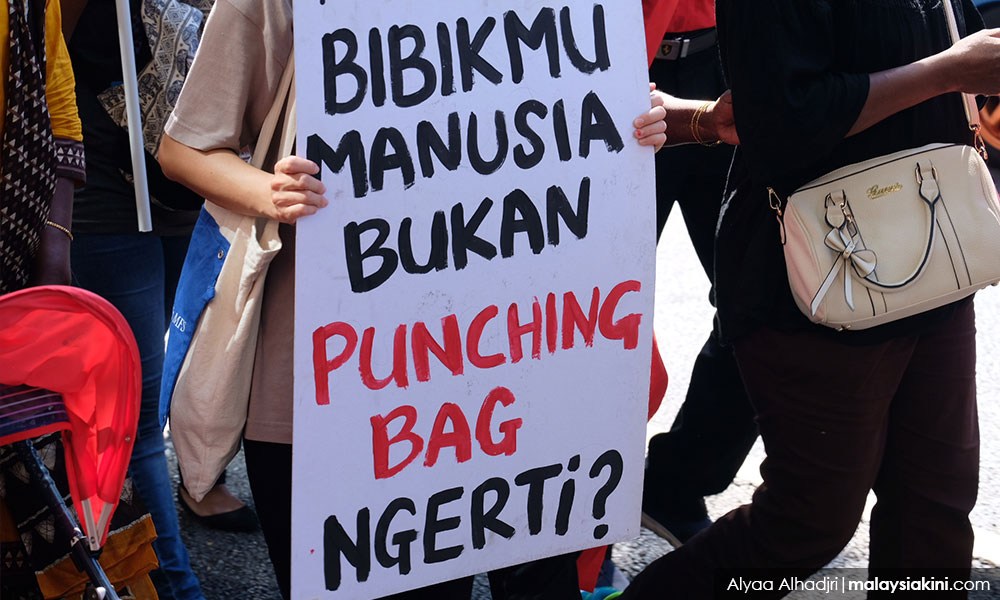The authority of the Department of Labour Peninsular Malaysia (JTKSM) director-general Asri Rahman to terminate a bilateral agreement signed in 2011 is being challenged.
The Protocol Amending the Memorandum of Understanding (MOU) 2011 encompassed the “Aku Janji”, or mandatory undertaking, both of which were being abolished in a letter dated Jan 21, 2020, signed by Asri, said Migrant Care country representative Alex Ong.
Ong pointed out that while the bilateral agreement commonly known as Protocol 2011 among labour activists was signed by Malaysia’s human resources minister and his Indonesian counterpart, Asri who was then JTKSM deputy director-general (Operations) issued the letter to terminate the labour rights instrument which was meant to protect foreign domestic workers.
“I am questioning how an international instrument undertaken by ministerial powers from two countries can be abolished without mutual consent by a deputy DG or even a DG,” he asked.
Ong said the letter was circulated to private employment agencies (PEA) through their respective associations and released them of their accountability.
In his letter sighted by Malaysiakini, Asri described the format of the domestic worker contract applied by JTKSM differed from what the Indonesian Embassy in Kuala Lumpur practised.
He disclosed that the decision to cease the application of the terms in Protocol 2011 in the recruitment and placement of domestic workers in Malaysia was arrived upon at a meeting between the Human Resources Ministry and the Indonesian Embassy on Jan 16, 2020.

Ong asked why the terms of the employment contract, especially that which related to worker rights, did not reflect what was stipulated in the protocol and if amendments could be made.
“By signing the undertaking (aku janji), Malaysian recruitment agencies took on the responsibility of ensuring the welfare of migrant workers they recruited into the country.
“Recruitment agencies were tasked to ensure that employers abided by the clauses in Protocol 2011.
“The protocol introduced basic labour rights for migrant domestic workers who were explicitly exempted in the Employment Act 1955,” he said.
He recalled that the protocol was signed at a time when Indonesia had placed a moratorium on domestic workers coming to Malaysia to work following the horrific physical abuse of Siti Hajar in 2009.
Pictures of Indonesian domestic worker Siti Hajar, 33, with ghastly scars all over her body were splashed across newspapers after she was reportedly tortured by her Malaysian female employer for three years.
Ong said the protocol introduced amendments to an MoU signed between the two countries in 2006 and featured rights like minimum wage, one rest day per week and even holiday.

“The protocol required employers to open a bank account for their domestic workers and the agents were tasked to ensure that workers were paid their salary every month.
“Employers were also not allowed to retain the passports of workers.
“However, both the Protocol 2011 along with the undertaking (aku janji) saw very poor implementation, which has led us to a similar impasse with Indonesia, today.
“Until Asri’s letter, the protocol was still being implemented by JTKSM as it was referenced in an official report as recently as 2017,” said Ong.
Ong said Asri’s letter also negated the use for JTKSM’s employment certification as a prerequisite for Calling Visa and Temporary Employment Visit Pass.
“When Asri tried to cancel the protocol with a letter, it shows that he does not want to be obliged to the MOU.
“It appears that JTKSM was trying to avoid their accountability and responsibility toward migrant domestic worker rights,” he said worriedly.
Ong called for the Protocol 2011 to be reinstated and enforced. - Mkini




No comments:
Post a Comment
Note: Only a member of this blog may post a comment.